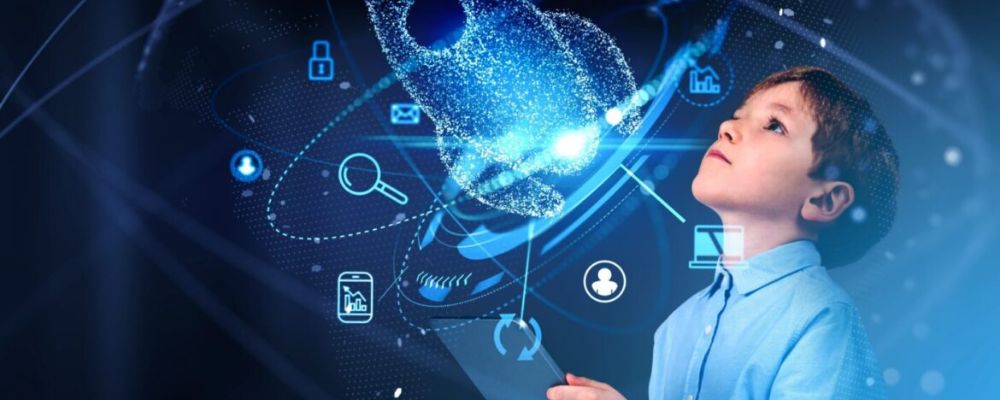
Education has always been at the heart of societal progress, but the integration of Artificial Intelligence (AI) in education is ushering in an era of transformation. From personalized learning experiences to improved administrative efficiency, AI is reshaping how we teach and learn. In this blog, we will explore the profound impact of AI on education, highlighting how AI-powered tools, machine learning, and data-driven approaches are improving educational outcomes, both for students and educators.
What is AI in Education?
Artificial Intelligence (AI) refers to the simulation of human intelligence in machines that are programmed to think and learn. In the context of education, AI is revolutionizing the traditional classroom model by introducing smart, data-driven tools that enhance the learning experience. AI in education can be as simple as adaptive learning programs or as complex as AI-powered tutors that interact with students in real-time, offering personalized feedback.
AI technology in the classroom can range from intelligent tutoring systems to learning management systems (LMS) that predict student performance and identify areas that need improvement. With AI, both students and educators can experience a more efficient, interactive, and individualized approach to learning.
How AI is Enhancing Personalized Learning
1. Tailored Learning Experiences
One of the most significant contributions of AI to education is its ability to create personalized learning experiences for students. Traditional education systems often follow a one-size-fits-all approach, but with AI-powered learning, education becomes more customized. AI can assess a student’s strengths, weaknesses, and learning style, tailoring lessons to suit their needs.
For example, platforms like Khan Academy and Coursera use AI to recommend courses and lessons based on the learner’s progress, areas of interest, and prior knowledge. This ensures that students can progress at their own pace, with content and exercises suited to their unique learning needs.
2. Data-Driven Insights for Teachers
AI-powered tools provide teachers with data-driven insights that can help them track student progress, identify learning gaps, and adapt their teaching methods accordingly. Through continuous assessment and feedback, teachers can personalize their approach, fostering better student outcomes.
Tools like GradeScope and EdTech platforms that integrate AI can automate the grading process, offering instant feedback, thus saving educators significant time. These insights help identify students who need extra attention, ensuring that no one falls behind.
The Role of AI in Automating Administrative Tasks
1. Time-saving for Educators
AI is also streamlining administrative tasks in educational institutions, allowing educators to focus more on teaching rather than paperwork. Tasks like grading assignments, managing student records, and even scheduling are being automated with AI-driven systems.
For example, AI-powered learning management systems (LMS) such as Canvas or Moodle automate many administrative tasks such as tracking student attendance, grading assignments, and maintaining records. These systems not only save time for educators but also ensure greater accuracy and consistency in administrative duties.
2. Enhancing Classroom Management
AI tools can help with classroom management by offering features such as real-time analytics and performance tracking. With AI, teachers can get insights into student behavior patterns, engagement levels, and participation, enabling them to adjust their teaching methods accordingly.
Platforms like Classcraft use AI to monitor student interactions, identify challenges, and provide suggestions for improving classroom dynamics. This helps create a more productive and harmonious learning environment.
AI-Powered Tutors: A Game-Changer for Student Success
1. On-Demand Learning Support
One of the most exciting applications of AI in education is the development of AI-powered tutors. These virtual tutors can offer on-demand support, helping students with homework, assignments, and exam preparation.
For example, Socratic by Google uses AI to answer student queries, explain concepts in detail, and provide step-by-step solutions. Similarly, Duolingo, an AI-based language learning app, helps students learn languages by adapting to their pace and offering personalized practice exercises.
AI tutors are available 24/7, making it easier for students to get the help they need at any time. This accessibility can be particularly beneficial for learners who may not have access to traditional tutoring resources.
2. Scalable Learning Solutions
Another benefit of AI tutors is scalability. Traditional tutoring services can be expensive and limited by availability, but AI education tools can scale to meet the needs of millions of students. These tools are not restricted by time zones or location, offering a cost-effective and accessible alternative to traditional one-on-one tutoring.
Platforms like Quizlet and Brainly leverage AI to create scalable solutions for students, offering a wide range of subjects and personalized feedback in real time.
AI and Student Success: A New Era of Learning Analytics
1. Predictive Analytics for Better Outcomes
AI can also play a significant role in improving student success through the use of predictive analytics. By analyzing vast amounts of data, AI can predict student performance, behavior, and future academic outcomes. This allows educators to intervene early, addressing potential issues before they escalate.
For instance, AI-driven platforms can predict which students are at risk of falling behind, enabling teachers to offer additional support or resources. This proactive approach improves the chances of student success and reduces dropout rates.
2. Intelligent Feedback and Guidance
AI also enhances the feedback loop for students. Instead of waiting for grades or end-of-term assessments, students can receive instant feedback on their performance, allowing them to make adjustments in real time. This level of responsiveness fosters a more interactive and supportive learning environment, which leads to better academic achievement.
AI in Higher Education: Shaping the Future of Learning
1. Smart Campus Technologies
In higher education, smart campus technologies powered by AI are revolutionizing the campus experience. From intelligent scheduling systems that optimize class timings to AI-powered chatbots that assist students with administrative tasks, AI is enhancing every aspect of university life.
For instance, AI systems like IBM Watson are being used to create virtual assistants that help students navigate the campus, access learning resources, and resolve issues related to their academic journey.
2. AI for Research and Collaboration
AI is also making its mark in higher education by assisting in research and collaboration. With machine learning algorithms and data analysis tools, researchers can process large datasets, analyze trends, and uncover insights more efficiently.
Moreover, AI is enabling collaboration across borders, connecting students and faculty members from around the world. Collaborative platforms powered by AI tools foster cross-cultural learning and global partnerships in research.
Ethical Considerations and Challenges in AI Education
While the potential benefits of AI in education are vast, it’s important to address the ethical concerns and challenges that come with its implementation. Key issues include:
- Data Privacy: AI systems collect vast amounts of student data. Ensuring that this data is protected and used ethically is paramount.
- Bias in Algorithms: AI systems may inadvertently reinforce existing biases if not properly trained. It’s essential to ensure that AI tools are fair and inclusive.
- Access to Technology: Not all students have equal access to AI-powered tools, which could lead to disparities in education quality.
Educational institutions must prioritize these issues to ensure AI is used responsibly and for the benefit of all learners.
Conclusion
AI is undoubtedly transforming education by providing more personalized, efficient, and accessible learning opportunities. From AI-powered tutors to automated administrative systems, the future of education is increasingly driven by artificial intelligence. However, as we embrace these advancements, it is crucial to address ethical concerns and ensure equitable access to technology.
As AI continues to evolve, its potential to revolutionize education will only grow. By embracing these technological advancements, educators, students, and institutions can create a more inclusive, engaging, and successful learning environment for the future.





